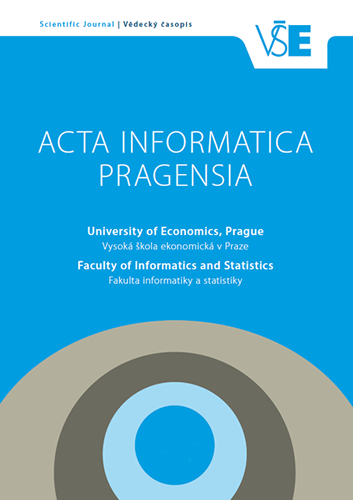Development and Validation of a Blockchain Literacy Scale
Development and Validation of a Blockchain Literacy Scale
Author(s): Kemal Elciyar, Neşe SatılmışSubject(s): Education, Sociolinguistics, Accounting - Business Administration, Marketing / Advertising, ICT Information and Communications Technologies, Business Ethics, Sociology of Education
Published by: Vysoká škola ekonomická v Praze
Keywords: Blockchain; Digital literacy; Online security; Legal regulations; Web 3.0
Summary/Abstract: Background: The use of blockchain is increasing daily and has become a transformative technology across various sectors. The competent use of blockchain is becoming a fundamental skill. Although numerous studies have attempted to measure digital competencies, the absence of research specifically focused on blockchain literacy has left a significant gap. Objective: The aim of this study is to provide a systematic review of digital literacy and blockchain measurement frameworks, comparing them with existing theoretical digital competence models. Methods: Furthermore, we introduce a newly developed Blockchain Literacy Scale (BLS). The factorial structure of the BLS is assessed to explore its multidimensional nature. A sample of 591 Turkish college students completed a questionnaire to empirically test its reliability, validity and general applicability.Results: Both Exploratory Factor Analysis (EFA) and Confirmatory Factor Analysis (CFA) supported a five-factor structure for the BLS, comprising: information access, information evaluation, economic literacy, legal literacy and risk literacy. The scale demonstrated strong internal consistency and reliability.Conclusion: Directions for future research and the practical implications of the newly developed BLS are discussed in the conclusion.Background: The use of blockchain is increasing daily and has become a transformative technology across various sectors. The competent use of blockchain is becoming a fundamental skill. Although numerous studies have attempted to measure digital competencies, the absence of research specifically focused on blockchain literacy has left a significant gap. Objective: The aim of this study is to provide a systematic review of digital literacy and blockchain measurement frameworks, comparing them with existing theoretical digital competence models. Methods: Furthermore, we introduce a newly developed Blockchain Literacy Scale (BLS). The factorial structure of the BLS is assessed to explore its multidimensional nature. A sample of 591 Turkish college students completed a questionnaire to empirically test its reliability, validity and general applicability. Results: Both Exploratory Factor Analysis (EFA) and Confirmatory Factor Analysis (CFA) supported a five-factor structure for the BLS, comprising: information access, information evaluation, economic literacy, legal literacy and risk literacy. The scale demonstrated strong internal consistency and reliability. Conclusion: Directions for future research and the practical implications of the newly developed BLS are discussed in the conclusion.
Journal: Acta Informatica Pragensia
- Issue Year: 14/2025
- Issue No: 1
- Page Range: 26-41
- Page Count: 16
- Language: English

